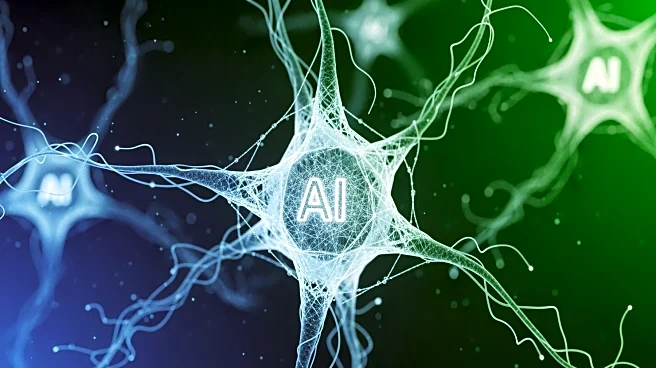What's Happening?
OpenAI has announced a return to the previous version of ChatGPT, following user feedback and concerns over mental health issues. Earlier this year, OpenAI had scaled back ChatGPT's personality to improve
user safety after a teenager's death was linked to interactions with the chatbot. The company had implemented age-gating to ensure a more age-appropriate experience, which led to complaints about the chatbot's reduced personality and effectiveness. Sam Altman, CEO of OpenAI, stated that the company has mitigated serious mental health issues and can now safely relax restrictions. The decision comes after users expressed dissatisfaction with the sterile responses of the upgraded GPT-5 model, lamenting the loss of their AI companion's personality. OpenAI plans to reintroduce more human-like interactions and personality features, including a controversial 'erotica for verified adults' mode.
Why It's Important?
The decision to revert to the previous ChatGPT model highlights the ongoing debate about AI's role in mental health and user interaction. While AI companions can offer support and engagement, they also pose risks of emotional reliance and mental health impacts. OpenAI's move reflects the need to balance user enjoyment with safety, especially in light of past incidents. The introduction of adult-oriented content raises ethical questions about AI's influence on behavior and societal norms. This development could impact AI's integration into daily life, influencing how users interact with technology and the expectations they have from AI systems.
What's Next?
OpenAI's decision to relax restrictions on ChatGPT may lead to increased scrutiny from mental health professionals and regulatory bodies. The company may face pressure to ensure that AI interactions do not contribute to negative mental health outcomes. Additionally, the introduction of adult content could spark debates about the appropriateness and regulation of such features in AI systems. Stakeholders, including users, mental health experts, and policymakers, will likely monitor the impact of these changes on user behavior and mental health. OpenAI may need to implement further safeguards and transparency measures to address concerns.
Beyond the Headlines
The shift back to a more personality-driven ChatGPT model underscores the complex relationship between AI and human emotions. As AI systems become more integrated into personal and professional settings, the ethical implications of their influence on human behavior become increasingly significant. The potential for AI to create emotional dependencies raises questions about the long-term effects on social interactions and mental health. OpenAI's approach to adult content also touches on broader cultural and ethical considerations regarding technology's role in shaping societal norms and values.










